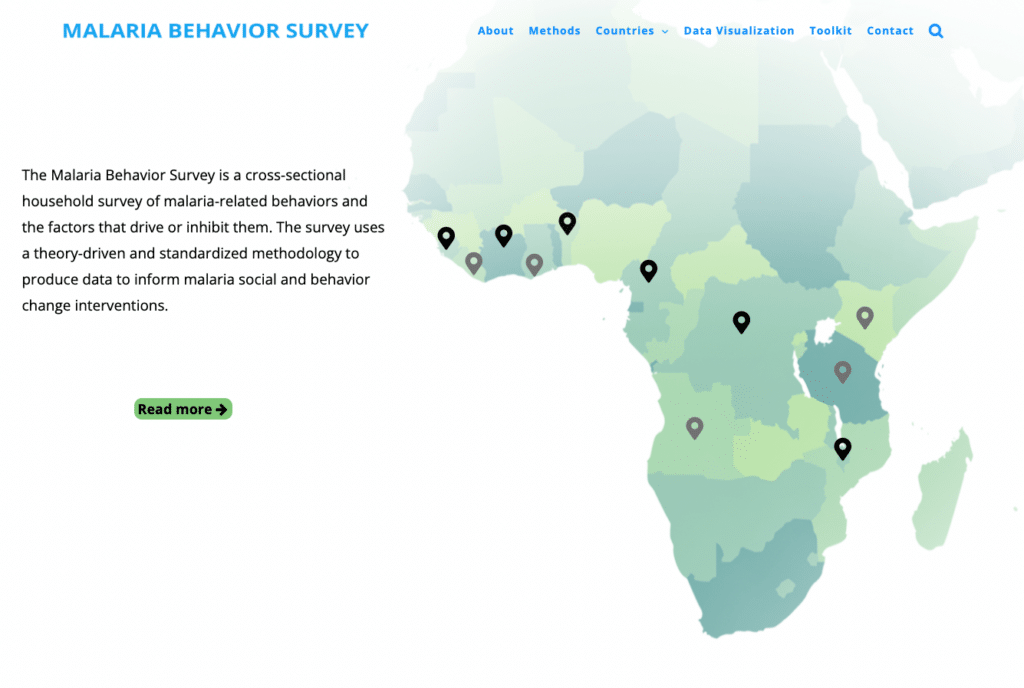The Malaria Behavior Survey is a cross-sectional household survey of malaria-related behaviors and the factors that drive or inhibit them. Understanding these drivers of behavior helps countries and program planners determine the appropriate focus of social and behavior change (SBC) programmatic activities to reduce the burden of malaria. The survey uses a theory-driven and standardized methodology to produce data to inform malaria social and behavior change interventions.
The results of the MBS are used to develop evidence-based malaria SBC programs and strategies by national malaria programs and other partners working in malaria SBC to increase insecticide-treated nets (ITN) use and care, prevention of malaria in pregnancy, prompt care seeking for fever, adherence to malaria test results, and where applicable, support seasonal malaria chemoprevention (SMC) adherence and indoor residual spraying (IRS) acceptance.
Results can also be used to inform Global Fund to Fight AIDS, Tuberculosis and Malaria concept notes, and in countries that receive funding from the U.S. President’s Malaria Initiative (PMI), to inform Malaria Operational Plan SBC priorities. While primarily a formative assessment tool, if implemented every 3-5 years, the MBS can be used in baseline-end line assessments and capture trends over time.
The MBS is currently implemented through Breakthrough ACTION.


